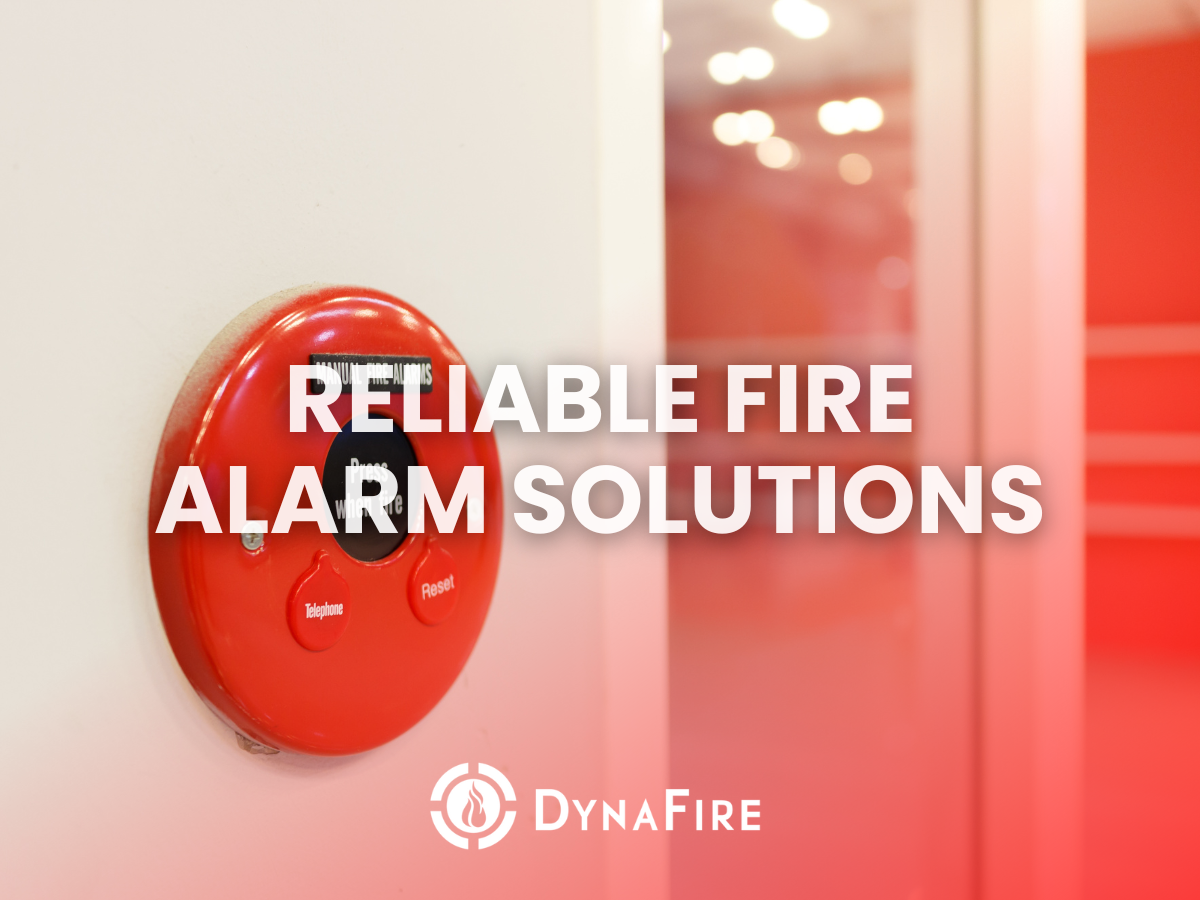Do temperatures affect my fire alarm system? Yes, especially in hot climates like the Southeast. Learn how high heat impacts system performance and how to prevent issues.
When summer temperatures spike—or your building includes spaces that regularly hit extreme heat levels—it’s natural to wonder: do temperatures affect my fire alarm system? The short answer is yes, they can. And if you’re managing a commercial property in a warm climate like Florida or Georgia, it’s essential to understand how heat can impact the performance and reliability of your life safety systems.
Here’s what building managers, facility engineers, and business owners need to know.
Do Temperatures Affect My Fire Alarm System?
Fire alarm systems are designed to detect and respond to the earliest signs of fire; however, environmental conditions, especially heat, can impact their performance. While they’re designed to operate within a certain temperature range, consistent exposure to high heat can cause some components to malfunction, degrade over time, or trigger false alarms.
In other words, extreme temperatures—whether seasonal or due to internal building conditions—can affect how your fire alarm system behaves.
Why Heat Can Cause Fire Alarm System Issues
Most commercial fire alarm systems consist of a control panel, detection devices (smoke or heat detectors), notification appliances (like horns and strobes), and miles of interconnected wiring. Each component is tested and rated for use within specific temperature thresholds.
Here’s how heat can interfere:
- Smoke Detectors: High heat can cause ionization or photoelectric sensors to misread environmental conditions, especially when heat is combined with humidity or dust. This can reduce sensitivity or cause unwanted alarms.
- Heat Detectors: Fixed-temperature and rate-of-rise detectors are triggered by heat, but in hot environments, they may activate without a fire present or fail if they’re already operating close to their temperature threshold.
- Control Panels and Electronics: Excessive ambient temperatures can cause internal electronics to overheat, shortening component life or triggering system faults.
This is especially common in places like commercial kitchens, manufacturing plants, mechanical rooms, and attics—areas that often experience sustained elevated temperatures.
Seasonal and Regional Risks in Warm Climates
In regions such as the Southeast, high temperatures are a part of everyday life. During the summer months, indoor spaces without adequate ventilation or climate control can quickly exceed safe operating ranges for sensitive equipment. Even in air-conditioned buildings, certain zones—such as electrical closets or upper mechanical levels—can overheat.
This makes routine inspection and proper system design even more critical for businesses located in hot-weather areas.
How to Protect Your Fire Alarm System from Heat-Related Failures
While you can’t control the weather, you can take steps to ensure your fire alarm system remains reliable, even in harsh environments:
- Schedule regular inspections—especially before the summer heat peaks.
- Choose components rated for higher temperatures in areas like kitchens, boiler rooms, or exterior installations.
- Avoid placing smoke detectors near vents, skylights, or heat-generating equipment.
- Ensure adequate ventilation in areas housing control panels or critical wiring.
- Document environmental conditions during inspections to spot trends that may point to overheating
A properly designed system will account for ambient conditions, but aging infrastructure or changes to building use can introduce new risks over time.
Know When to Call in a Pro
So, do temperatures affect my fire alarm system? Yes—and if your system is showing signs of trouble during hot weather, it’s time to bring in an expert. Some warning signs to watch for include:
- Frequent or unexplained false alarms
- Detectors that trip without smoke or flame present
- Control panel error messages
- Alarm zones that don’t reset or fail diagnostics
When these issues arise, it’s critical to work with a licensed life safety provider who understands how temperature impacts the performance of fire alarm systems.
Partner With DynaFire to Keep Your System Ready Year-Round
At DynaFire, we design, install, monitor, and maintain commercial fire alarm systems that are built to perform in real-world conditions, including the heat and humidity of the Southeast. Our NICET-certified technicians and in-house engineers account for environmental factors from the outset, ensuring your system remains compliant, functional, and dependable.
Whether you’re troubleshooting an issue, planning a system upgrade, or starting new construction, we can help you build in protection from the ground up.
Contact us today to schedule a system assessment or learn how our fire alarm solutions keep your people and property safe—no matter the temperature.






